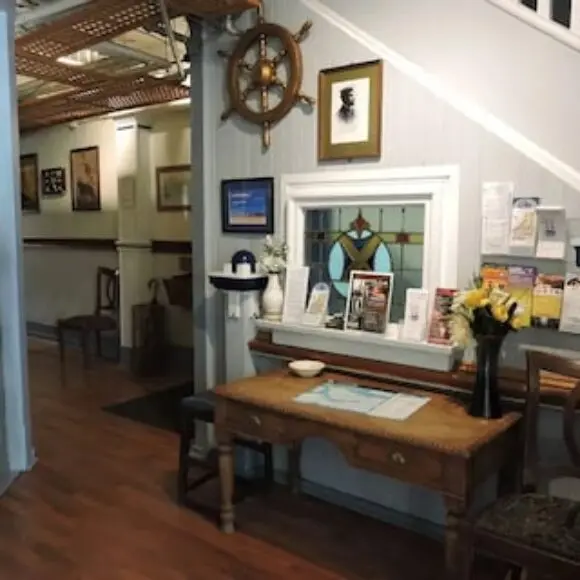Hotel Heritage Inn

Heritage Inn
Hotel Heritage Inn reviews
Planning your ferry trip from Hope? Stay at Heritage Inn; rated and is available from CAD $ 89. Heritage Inn is perfectly situated near the ferry routes, and can be reserved directly through Trivago.
📍 Address Heritage Inn
570 Old Hope-Princeton Way, V0X 1L0, Hope, Canada
FAQ
What are the overnight parking regulations at the Village Bay ferry Vancouver terminal?
The overnight parking regulations at the Village Bay ferry Vancouver terminal are designed to ensure fair access and efficient use of parking spaces. To understand the specific rules and any associated fees, please consult the Village Bay overnight parking regulations page. It’s important to be aware of any time limits or restrictions before leaving your vehicle overnight.
What is the travel time for the ferry Vancouver route from Nanaimo (Departure Bay) to Horseshoe Bay?
The travel time for the ferry Vancouver route from Nanaimo (Departure Bay) to Horseshoe Bay is approximately one hour and forty minutes. However, it’s always best to verify the exact duration by checking the Nanaimo to Horseshoe Bay crossing times. This crossing time can be affected by weather conditions and other unforeseen circumstances.
Ferry Vancouver
Ferry travel tips for first-time visitors include arriving early, bringing layers for changing weather conditions, and planning ground transportation in advance. Understanding terminal layouts and boarding procedures reduces travel stress. Experienced ferry travelers recommend booking accommodations on Vancouver Island in advance, especially during peak season periods.
Multi-day Vancouver Island itineraries often begin with ferry travel from the mainland, allowing tourists to explore the island’s diverse regions. Popular destinations include Victoria’s Inner Harbour, Tofino’s surf beaches, and the wine regions of the Cowichan Valley. Ferry connections enable comprehensive island exploration combining urban and wilderness experiences.
Cultural experiences begin during ferry travel with onboard art displays featuring local Pacific Northwest artists. Indigenous cultural elements appear in vessel names, artwork, and interpretive displays. These features introduce visitors to the rich cultural heritage of Vancouver Island and coastal British Columbia.
Emergency procedures and safety protocols ensure passenger security throughout ferry crossings. Modern vessels feature comprehensive safety equipment and trained crew members. Regular safety drills and equipment inspections maintain the highest safety standards for all passengers and vehicles.
Real-time information about ferry schedules, delays, and availability helps travelers plan their Vancouver Island journey effectively. Mobile apps and online resources provide current sailing information and terminal conditions. Staying informed prevents delays and ensures smooth travel experiences.
Fuel and vehicle services are available at some ferry terminals, allowing travelers to prepare for their Vancouver Island adventure. Terminal locations often feature gas stations, convenience stores, and automotive services. Pre-trip vehicle inspections ensure safe travel on Vancouver Island’s diverse road conditions.
Weather considerations can occasionally affect ferry schedules, particularly during severe winter storms or high winds. Safety remains the top priority, with sailings potentially delayed or cancelled during dangerous conditions. Passengers should monitor weather forecasts and sailing status before traveling, especially during winter months.
Adventure sports enthusiasts use ferry services to transport kayaks, bicycles, and other outdoor equipment to Vancouver Island’s recreation destinations. Special handling procedures ensure equipment safety during transport. Vancouver Island offers world-class opportunities for surfing, hiking, cycling, and water sports accessible via ferry connections.
Seasonal variations significantly affect ferry operations, with summer bringing increased frequency and capacity to handle peak tourist demand. Winter schedules may have reduced sailings, while spring and fall offer moderate crowds with pleasant weather. Holiday periods require advance planning due to extremely high demand for popular routes.
Duke Point near Nanaimo provides an alternative ferry terminal with connections to Tsawwassen, offering a more southern approach to Vancouver Island. This route is particularly popular with commercial vehicles and RV travelers seeking to avoid downtown traffic. The Duke Point terminal provides easy access to the Island Highway and central Vancouver Island destinations.




